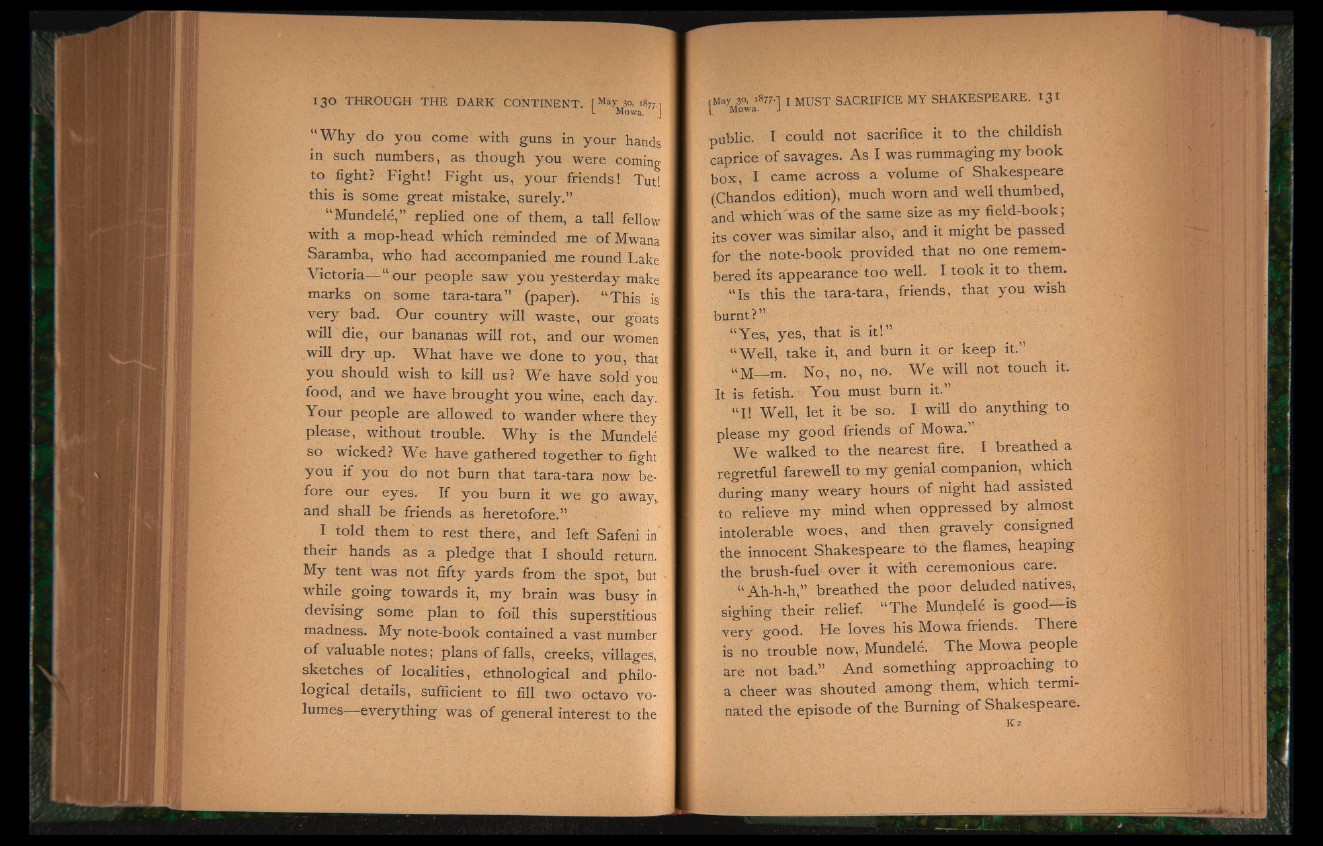
1 30 THROUGH THE DARK CONTINENT, f Ma7 30, 1877.1
L Mowa, J
“Why do you come with guns in your hands
in such numbers, as though you were coming
to fight? Fight! Fight us, your friends! Tut!
this is some great mistake, surely.”
“Mundele,*’ replied one of them, a tall fellow
with a mop-head which reminded me ofMwana
Saramba, who had accompanied me round Lake
Victoria— “ our people saw you yesterday make
marks on some tara-tara ” (paper). “ This is
very bad. Our country will waste, our goats
will die, our bananas will rot, and our women
will dry up. What have we done to you, that
you should wish to kill us? We have sold you
food, and we have brought you wine, each day. I
Your people are allowed to wander where they
please, without trouble. Why is the Mundele
so wicked? We have gathered together to fight
you if you do not burn that tara-tara now before
our eyes. If you burn it we go awayv
and shall be friends as heretofore.”
I told them to rest there, and left Safeni in’
their hands as a pledge that I should return.
My tent was not, fifty yards from the spot, but
while going towards it, my brain was busy in
devising some plan to foil this superstitious
madness. My note-book contained a vast number
of valuable notes; plans of falls, creeks, villages,
sketches of localities, ethnological and philo-
logical details, sufficient to fill two octavo volumes—
everything was of general interest to the
fMay 3°) i877--| i MUST SACRIFICE MY SHAKESPEARE. 13 1
I Mowa. J
public. I could not sacrifice it to the childish
caprice of savages. As I was rummaging my book
box, I came across a volume of Shakespeare
(Chandos edition), much worn and well thumbed,
and which'was of the same size as my field-book;
its cover was similar also,' and it might be passed
for the rtote-book provided that no one remembered
its appearance too well. I took it to them.
“ Is this the tara-tara, friends, that you wish
burnt?”
“ Yes, yes, that is it!”
“Well, take it* and burn it or keep it.”
“M— m. No, no, no. We will not touch it.
It is fetish. You must burn it.”
“ I! Well, let it be so, I will do anything to
please my good friends of Mowa.
We walked to the nearest fire. I breathed a
regretful farewell to my genial companion, which
during many weary hours of night had assisted
to relieve my mind when oppressed by almost
intolerable woes, and then gravely consigned
the innocent Shakespeare to the flames, heaping
the brush-fuel over it with ceremonious care.
“ Ah-h-h,” breathed the poor deluded natives,
sighing their relief. “ The Mundele is good— is
very good. He loves his Mowa friends. There
is no trouble now, Mundele. The Mowa people
are not bad.” And something approaching to
a cheer was shouted among them, which terminated
the episode of the Burning of Shakespeare.